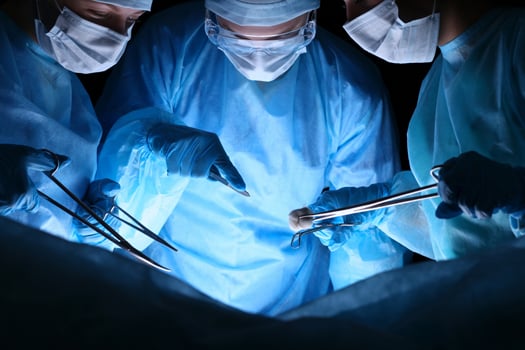
Spinal discs are highly resilient. Even so, the discs that support the spine and ease the burden on spinal bones sometimes require surgery. There are two common options available today: disc replacement and discectomy surgery. These two procedures have a similar goal: to relieve spinal disc pain. However, disc replacement is not the same as a discectomy. This article outlines what you need to know about both options.
Discectomy
With discectomy surgery, only part of the disc is removed in most cases. There are times when the entire disc may be removed. If this is necessary, your doctor may recommend disc replacement, especially if you prefer not to have fusion surgery. Generally, there is an effort made to preserve as much of the spinal disc as possible without actually removing the disc.
The main drawback that can happen with a discectomy is that not enough material may be removed. If this happens, a second surgery may be recommended or necessary. There is also a risk of reherniation, which could happen several months or years after the initial discectomy.
Pros
• It is a less invasive procedure
• The recovery time is faster for most patients
• The actual spinal disc is preserved as much as possible
Cons
• There is a risk of reherniation
• The remaining original disc may slip or move over time
• You may not be able to get back to a more active lifestyle as quickly as you would like
Disc Replacement
With disc replacement, an artificial disc is inserted where the original disc was located. You essentially get an entirely new spinal disc with disc replacement. This can eliminate or significantly reduce the risk of needing a second surgery later. In addition, range of motion is preserved, which is why many spinal disc patients are at least willing to consider disc replacement as an alternative to spinal fusion surgery.
The disc inserted into the space left by the removed spinal disc is made of materials meant to mimic an actual spinal disc. The materials used are also impressively durable. This eliminates the possibility of reherniation with the same disc.
Pros
• You get an entirely new spinal disc
• Spinal range of motion is preserved
• You will be able to perform more strenuous activities without a serious risk of reinjury as long as you take proper precautions
Cons
• It is a more invasive procedure
• The recovery time can be a bit longer
• There may some damage to nearby nerves, although efforts are made to avoid this
Determining Which Is Right for You
There is no "best" option when it comes to choosing between a discectomy and disc replacement. It ultimately depends on what is right for your situation. Typically, the decision is determined based on the extent of the damage to the spinal disc. Patient preferences are also considered. Some patients prefer to reduce the risk of needing a second surgery. However, others prefer to have a discectomy or a less invasive microdiscectomy, since these are minimally invasive options that typically keep recovery times shorter.
Even though discectomy surgery is a common and generally quite successful procedure, a hole is frequently left in the outer wall of the disc. In fact, patients with these large holes in their discs are more than twice as likely to reinjure themselves by having what is known as a reherniation. These reherniations often require additional surgery or even fusions. Fortunately, there is a new treatment specifically designed to close the large holes that are often left in spinal discs after discectomy surgery. Barricaid is a bone-anchored device proven to reduce reherniations, and 95 percent of Barricaid patients did not undergo a reoperation due to reherniation in a 2-year study timeframe. This treatment is done immediately following the discectomy—during the same operation—and does not require any additional incisions or time in the hospital.
If you have any questions about the Barricaid treatment or how to get access to Barricaid, ask your doctor or contact us at 844-288-7474.
For full benefit/risk information, please visit: https://www.barricaid.com/instructions.


Comments